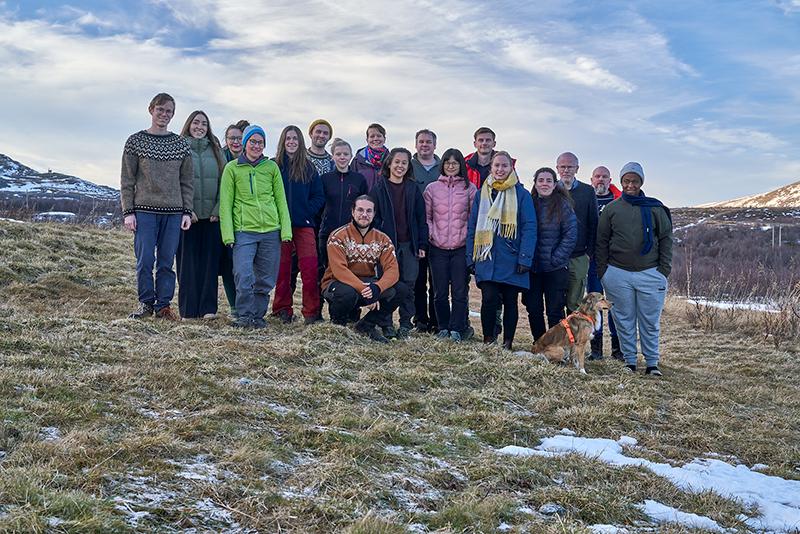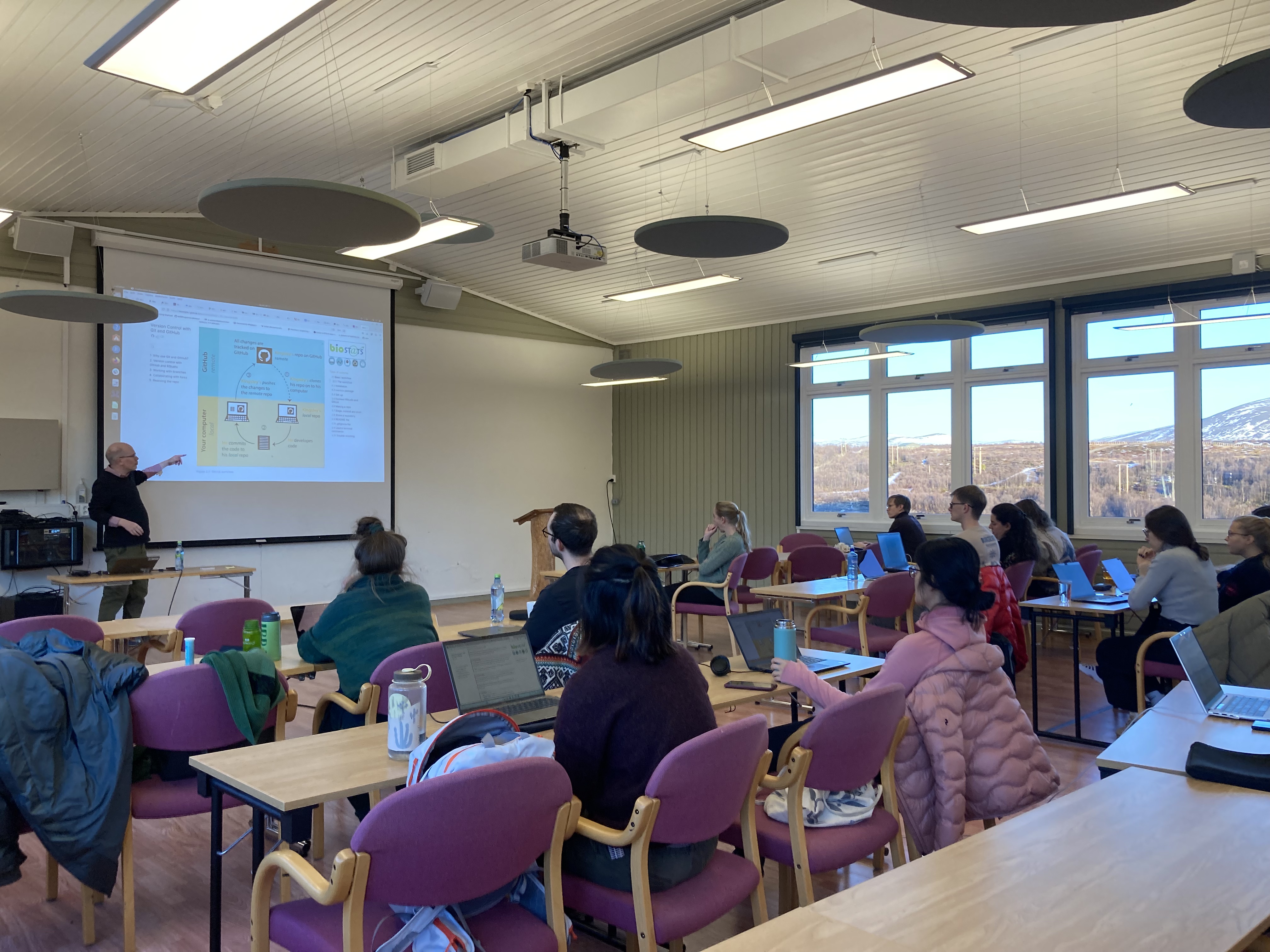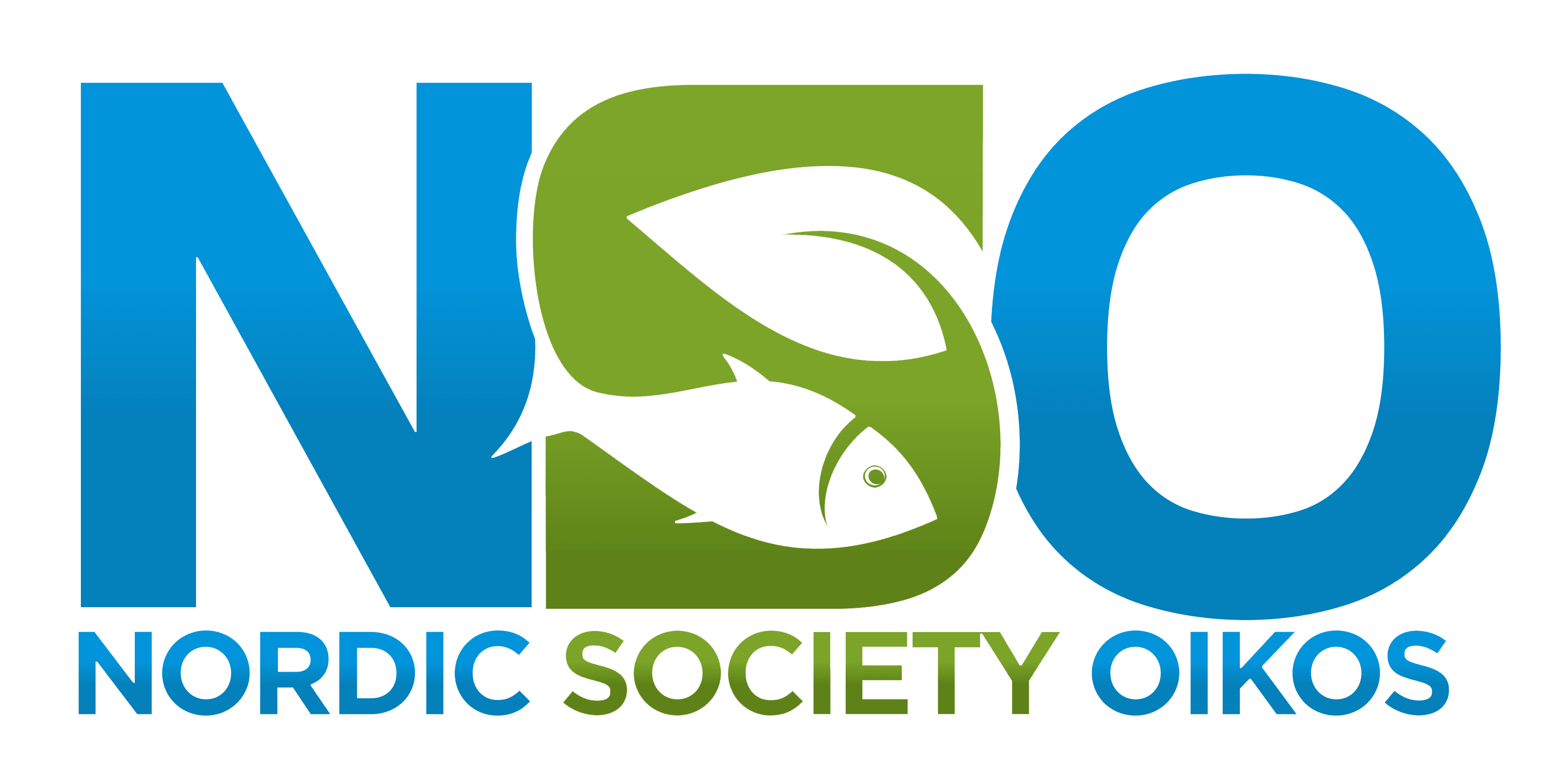Grant report: Open, Reproducible and Transparent Science in Ecology

The course on Open, Reproducible and Transparent Science in Ecology was held at Hjerkinn, located between Oslo and Trondheim between the 6.- 11. November 2024. We had an international group of 13 students from Scandinavia (Norway, Finland, and Denmark/Greenland), Switzerland and the UK.

The students were interested and engaged in learning how to wrangle data, write code, execute functions, and learning how to make an R package. The course curriculum also contains reproducible workflows, using tools to improve reproducibility in their own work, such as quarto, git/GitHub and targets. We had invited guest lecturers to talk about GBIF, Darwin Core data standards and what it takes to meet the FAIR data standards. One evening we conducted an exercise, where the students screened articles in ecological journals, searching for openly available data and code to reproduce the analysis. The result was eye-opening for the students in that most data was available, however the analysis could rarely be reproduced due to lack of availability of code. Mid-week, we organized a hike to Vålåsjøhøe to get some fresh are and clear our heads. After the hike, we got a presentation from Roy Andersen who works at the Villreinsenter at Hjerkinn. He presented the ecology and status of the reindeer in Norway and the work the Villreinsenter does to protect the reindeer. On the last day, the students got the opportunity to work on their own projects, applying new approaches they have learned.
After five days, we left Hjerkinn tired and satisfied, full of ideas, motivation and inspiration from the new tools and skills to improve how to do science.
This event was funded by the NSO Networking and Education Grant 2024 awarded to Aud Halbritter.
